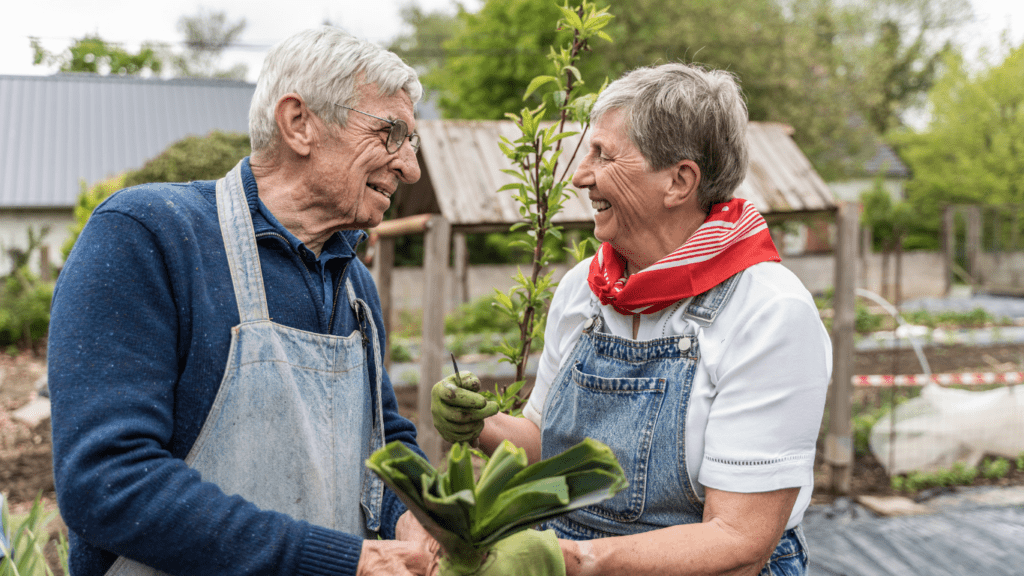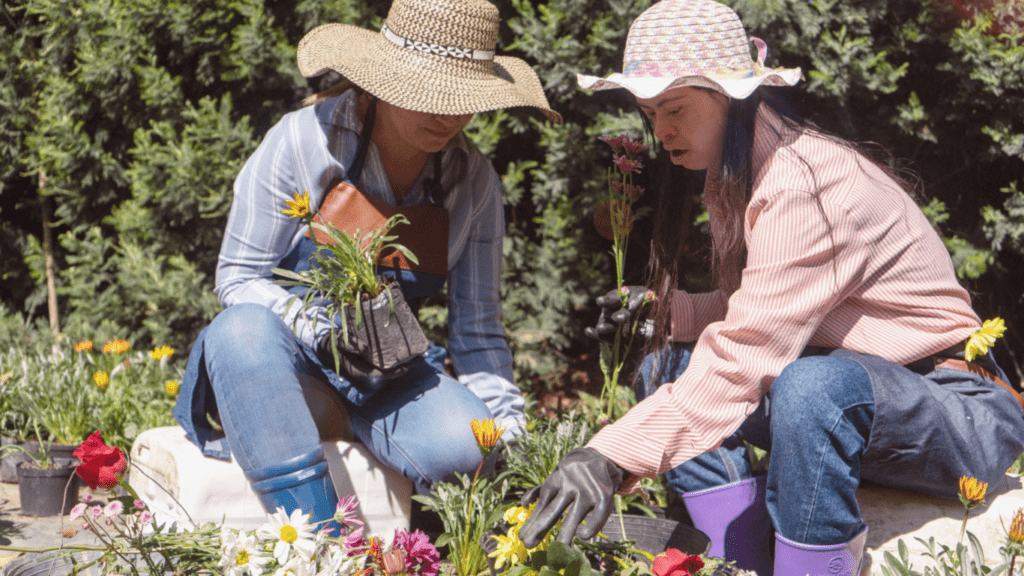Have you ever considered the mental health benefits of growing your own food? As someone who’s passionate about gardening, I’ve discovered the profound impact it can have on our well-being. Cultivating your fruits and vegetables not only nourishes your body but also nurtures your mind.
In today’s fast-paced world, tending to a garden offers a therapeutic escape from daily stressors. The simple act of planting seeds and watching them grow can bring a sense of accomplishment and connection to nature. Whether you have a spacious backyard or a few pots on a windowsill, the act of gardening can be a powerful tool for improving mental health.
Join me as we explore the fascinating ways in which growing your own food can positively influence your mental well-being. Let’s dig deeper into this enriching experience that not only benefits your body but also feeds your soul.
The Connection Between Gardening and Mental Health
Understanding the Psychological Gains
Gardening offers numerous psychological benefits that can enhance mental well-being. The act of nurturing plants and watching them grow can instill a sense of purpose and achievement, fostering positive emotions. Engaging in gardening tasks like planting, weeding, and harvesting can provide a meditative experience, promoting mindfulness and reducing stress levels. This hands-on activity encourages individuals to focus on the present moment, leading to a calmer and more tranquil state of mind.
Connecting with Nature’s Essence
Gardening allows individuals to connect with the natural world on a deeper level, promoting a sense of harmony and tranquility. Being surrounded by greenery and fresh air while tending to plants can boost mood and increase feelings of happiness and relaxation. This intimate interaction with nature can evoke a sense of wonder and awe, offering a much-needed escape from the fast-paced modern lifestyle. By fostering a closer bond with the earth and its cycles, gardening can nurture a profound connection to the essence of life itself.
Benefits of Growing Your Own Food
Growing your own food offers incredible benefits for both your mental health and overall well-being. Let’s explore how cultivating your own plants can have a positive impact on your stress levels, mood, and self-esteem.
- Stress Reduction and Relaxation
I find that spending time tending to my garden helps me unwind and destress after a long day. The simple act of caring for plants and watching them grow can provide a sense of calm and relaxation. It’s a meditative practice that allows me to escape from the hustle and bustle of daily life. By focusing on the needs of my plants, I can let go of worries and refocus my mind on the present moment. - Enhanced Mood and Self-esteem
Cultivating a garden can significantly boost my mood and self-esteem. Seeing the fruits of my labor literally grow before my eyes gives me a sense of accomplishment and pride. Knowing that I am nurturing something and helping it thrive fills me with joy and satisfaction. This sense of achievement can have a positive impact on my overall mood, making me feel happier and more fulfilled in my daily life.
Horticulture Therapy Explained
When it comes to understanding the healing powers of gardening, one can delve deeper into the field of horticulture therapy, where the principles align with promoting mental well-being through plant-related activities.
Principles of Therapeutic Gardening
In the realm of therapeutic gardening, the core principles revolve around utilizing plant-centered activities to enhance emotional, physical, and mental health. It focuses on creating a nurturing environment where individuals can engage with nature, fostering a sense of connection and tranquility.
Case Studies and Real-life Applications
Real-life applications of horticulture therapy have showcased its effectiveness in improving the quality of life for individuals dealing with various mental health challenges. Case studies reveal how incorporating gardening activities into therapeutic interventions has led to reduced stress levels, increased feelings of contentment, and a renewed sense of purpose for many participants.
Environmental Impact and Sustainability
Eco-Friendly Practices in Personal Gardening
In personal gardening, sustainable practices play a vital role in reducing our environmental footprint. Utilizing organic fertilizers, such as compost or manure, instead of chemical-based ones not only nourishes the soil but also prevents harmful substances from seeping into the earth. By opting for natural pest control methods like companion planting or introducing beneficial insects, I’m minimizing the need for synthetic pesticides, thus safeguarding the ecosystem in my garden.
Long-Term Environmental Benefits
The long-term benefits of growing my food extend beyond personal satisfaction. By cultivating my produce, I’m contributing to a greener environment by reducing carbon emissions associated with commercial farming, transportation, and refrigeration of store-bought produce. Additionally, as I embrace sustainable gardening practices like water conservation, crop rotation, and soil regeneration, I’m actively participating in the preservation of biodiversity and promoting a healthier ecosystem for future generations.

 Jameser Knowlesicker is the visionary founder of the project, passionately advocating for urban agriculture and sustainability. His commitment to transforming city landscapes into vibrant green spaces led him to create a platform that disseminates the latest news and trends in urban farming. Jameser focuses on promoting eco-friendly practices and products, emphasizing the health benefits of growing one’s own food. Under his leadership, the project has become a vital resource for urban gardeners and sustainability enthusiasts, inspiring collective efforts to foster environmental sustainability and enhance urban life.
Jameser Knowlesicker is the visionary founder of the project, passionately advocating for urban agriculture and sustainability. His commitment to transforming city landscapes into vibrant green spaces led him to create a platform that disseminates the latest news and trends in urban farming. Jameser focuses on promoting eco-friendly practices and products, emphasizing the health benefits of growing one’s own food. Under his leadership, the project has become a vital resource for urban gardeners and sustainability enthusiasts, inspiring collective efforts to foster environmental sustainability and enhance urban life.